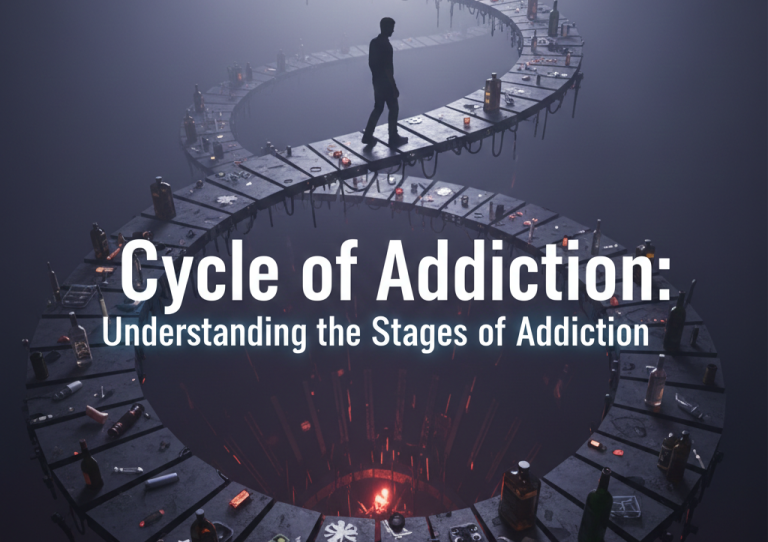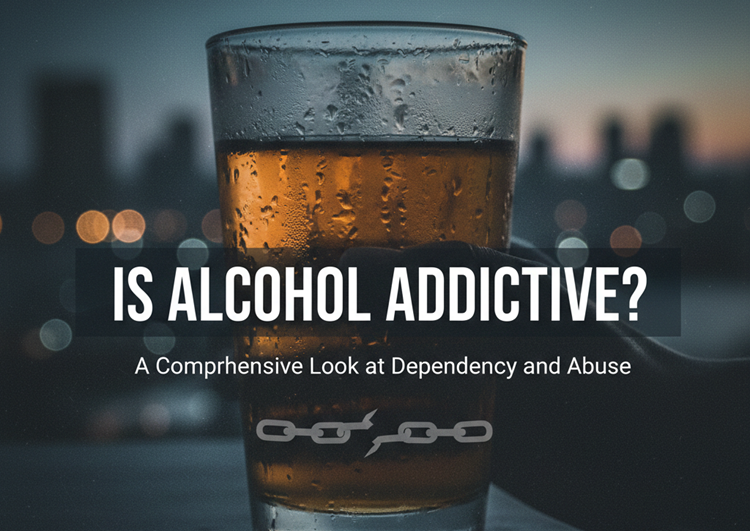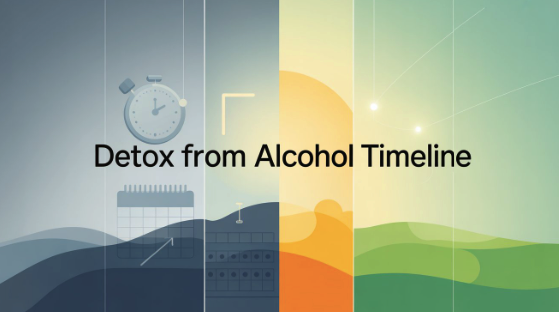Many people think that alcohol is helpful to have a rest after a tiring day at work or studying. Others use it to relax or to have fun. However, too much consumption of alcohol has the opposite impact to cause anxiety and even panic attacks in the worst case. This blog focuses on the correlation between alcohol use and anxiety and how alcohol addiction results in panic attacks and other anxiety-related disorders.
Can Alcohol Cause Anxiety?
At first glance, alcohol might look like a quick fix for stress or anxiety. Most people use it to cope with feelings of depression or euphoria because it can soothe the central nervous system. However, this theory is misleading, and the effects of the aftermath can be harmful to mental health.
Alcohol knocks the balance of chemicals in the brain which are responsible for controlling mood and stress like serotonin and dopamine. These neurotransmitters are quite important in maintaining the anxiety levels in the body. When alcohol suppresses the natural production of these chemicals it can cause a person to feel more anxious as soon as the alcohol wears off. This rebound anxiety is a reaction of the body to alcohol and may be very intense and can lead to a cycle of dependence where people drink to cure anxiety that results from alcohol withdrawal.
How Alcohol Triggers Panic Attacks
Alcohol is a significant trigger for people who have panic attacks. A panic attack involves episodes of sudden intense fear or discomfort accompanied by physical symptoms including a very rapid increase in the activity of your heart and a very rapid increase in your breathing rate, a feeling of intense uneasiness, a trembling which you cannot stop, and often a sinking feeling in the stomach and dizziness. Symptoms can resemble the effects of alcohol on the body — when consumed in excess.
Alcohol can make the body dry out, disrupt your usual sleeping patterns, and raise your heart rate, all of the things that might lead to a panic attack. Because alcohol increases heart rate, it’s even more concerning because it can make your brain believe it’s having a panic attack, tricking the brain into responding with more anxiety. It can get out of hand and become a full-blown panic attack.
High amounts of alcohol also lower inhibitions and impair judgment, so that person may be more likely to engage in behaviors that increase their anxiety. When a person has had a night of heavy drinking, he or she may start to be out of control but can end up with all the adrenaline crashing that brings a feeling of panic.
Alcohol Withdrawal and Anxiety
The withdrawal symptoms are one of the most difficult things to deal with after you have quit alcohol — symptoms such as increased anxiety and even panic attacks are common. Stopping alcohol suddenly can trigger withdrawal in the body that is trying to rebalance its neurotransmitters and healthcare when it’s typically not getting the juice from it.
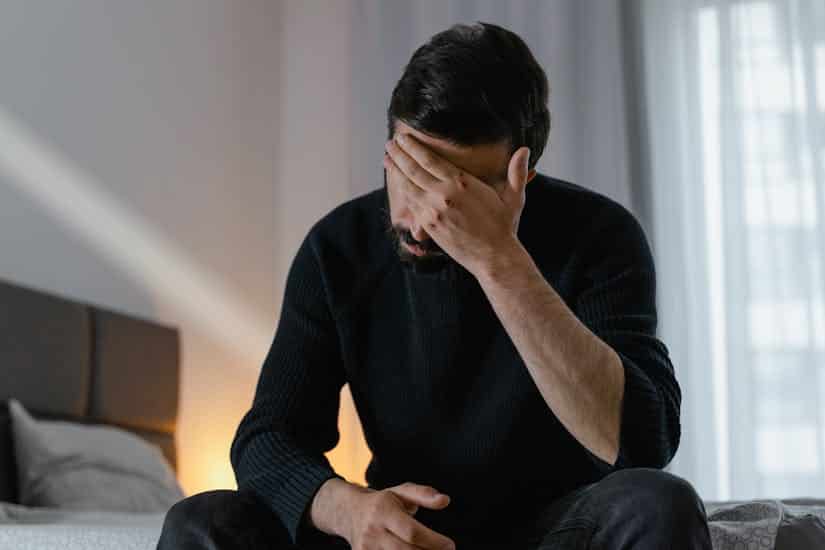
Withdrawal results in a spike of anxiety that can take between several days and even several weeks. This increased anxiety can also cause the fear to get so bad, that you turn to panic attacks, which then make the withdrawal process even harder to deal with.
Some common symptoms of alcohol withdrawal include:
- Tremors or shakes
- Sweating
- Rapid heart rate
- Sleeping or insomnia difficulty
- Intense anxiety or agitation
People with these symptoms can get so overwhelmed and fearful that they will think they are getting a panic attack. When withdrawal is severe, patients can develop delirium tremens (DTs) which can manifest in hallucinations, extreme confusion, and extreme anxiety. That’s why people who are withdrawing from alcohol must get medical supervision while detoxing.
Long-Term Effects of Alcohol on Mental Health
Many people know what a hangover can do for your body in the short term, but tend to overlook how alcohol can take a toll on your mental health in the long term. Alcohol abuse can cause chronic anxiety disorders and depression.
Generalized anxiety disorder (GAD) or panic disorder is one of the leading risks among people who use alcohol over the long term. Even after a person stops drinking, these conditions can continue because the brain and body must heal after repeated damage from chronic alcohol abuse.
It’s a cycle that can become self-perpetuating between alcohol abuse and anxiety. People drink to get rid of the anxiety but it ends up making their condition worse over and over again. The more anxious they become, the more they will be compelled to drink more in an attempt to quell that discomfort, with these continued drinks eventually becoming more and more addictive and causing mental health issues to become more severe.
The long-term effects of alcohol on mental health include:
- Persistent anxiety, even in situations where alcohol is not involved.
- Increased likelihood of developing other mood disorders, such as depression.
- Difficulty coping with stress or managing daily responsibilities without alcohol.
How Treatment Can Help Break the Cycle
The road out of alcohol abuse and anxiety is not easy, but with the right treatment, it is possible.
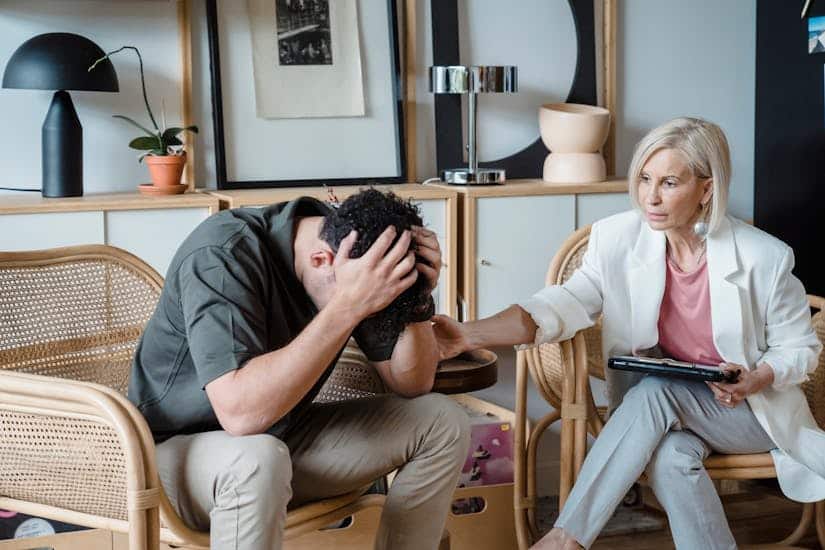
Effective treatment for alcohol-related anxiety often involves a combination of therapies, including:
- Cognitive Behavioral Therapy (CBT): This type of therapy helps people gain insight into what they think in their heads and change negative thought patterns that lead to alcohol abuse and anxiety.
- Group Therapy: A support group provides a safe place for a person to share their experience and learn from people who are experiencing similar situations.
- Holistic Approaches: Mindfulness meditation, yoga, and relaxation exercises are all ways in which people can deal with anxiety instead of alcohol.
Medical treatment of anxiety in addition to other withdrawal symptoms, may be necessary to safely go through alcohol withdrawal for those treating an alcohol problem. For the worst cases, there may be prescribed medications to control mood and prevent sudden panic attacks during recovery.
Getting help early is the key that will help you overcome alcohol abuse and alcohol-related anxiety. Support in professional settings helps learn healthier coping mechanisms that break the cycle of alcohol dependency and anxiety. Alcohol may seemingly be an easy way to ease anxiety, but actually, the opposite is more often the case.
Alcohol abuse can cause panic attacks to occur, as well as exacerbate long-term anxiety disorders. Orlando Treatment Solutions brings you a dedicated team to take you through recovery and offer all the support you will need to regain control of your life. If you or someone you know is battling with alcohol abuse and anxiety disorders, we are here to help you. Contact us at (321) 415-3213 today to know more.














